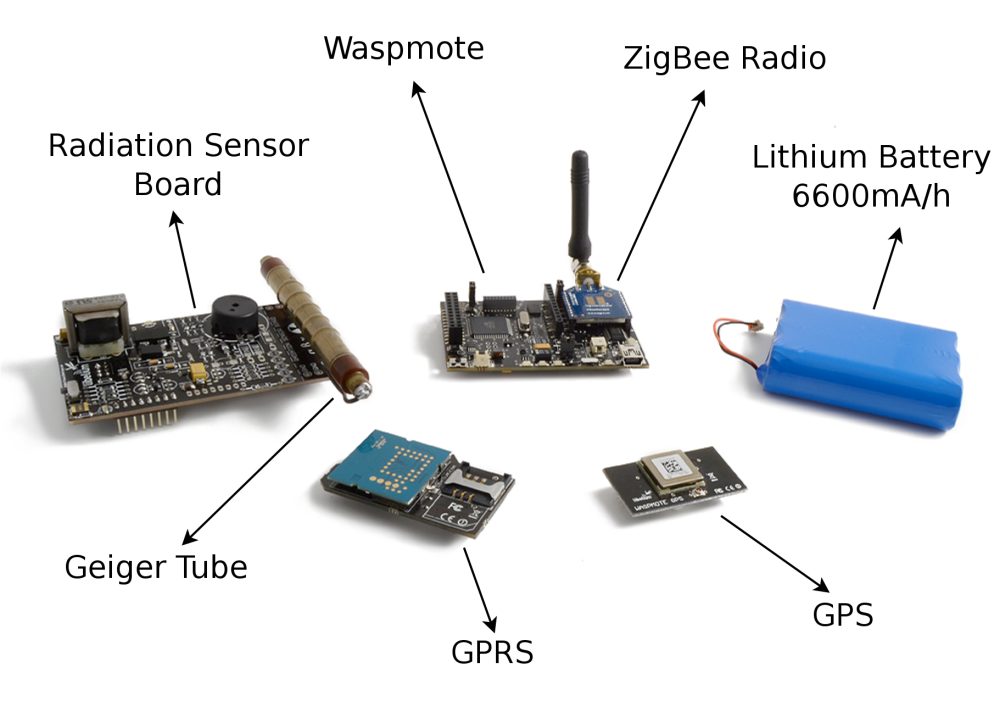What is a radio sensor?
Table of Contents
A radio sensor is an electronic device that uses radio waves to detect, measure and transmit information. It is designed to pick up radio-frequency signals and convert them into usable data. Radio sensors are used in many fields, including industry, agriculture, the environment, health, telecommunications, and many others.
Radio sensors operate on the principle of detecting electromagnetic waves emitted by specific transmitters. These waves may be transmitted by wireless communication equipment, beacons, wireless networks, or other sources. The radio sensor is designed to receive these waves and extract relevant information.

The radio sensor generally consists of an electronic circuit, an antenna to receive the radio signals, and a microcontroller to process the data. It may also include other components such as physical sensors (e.g. temperature, humidity, pressure) to collect additional information. Some radio sensors are battery-powered, while others can be powered by external energy sources or operate autonomously through energy recovery.
Once the radio signals have been captured and the data processed, the radio sensor can transmit the information to a base station or other receiving devices via wireless communication protocols such as Wi-Fi, Bluetooth, Zigbee, LoRa, Sigfox, etc. This transmission can be carried out in real-time or periodically, depending on the specific needs of the application. This transmission can be carried out in real-time or periodically, depending on the specific needs of the application.
Radio sensors offer many advantages, including flexible installation and implementation, extended communication range, low energy consumption, and reduced costs compared with wired solutions.
They also enable remote data collection in difficult-to-access environments, as well as real-time monitoring of parameters such as temperature, humidity, pressure, brightness and more.
Read More: Unleashing the Power of Renewable Energy in 2023: A Sustainable Future
In conclusion, radio sensors play an essential role in many applications, enabling data to be collected, transmitted, and processed using radio waves. Their use offers opportunities for innovation and optimization in many sectors, contributing to the evolution of connectivity and efficiency in our increasingly interconnected environment.
A practical solution for energy efficiency and comfort
Technological advances and the rapid evolution of the Internet of Things (IoT) have opened up new prospects for companies seeking to improve energy efficiency and comfort in buildings. Among the many solutions on the market, wireless radio sensors stand out as an effective and practical option.
Enless Wireless: expertise and reliability
Enless Wireless, a specialist manufacturer in this field for over 13 years, offers unrivalled expertise in wireless radio sensors dedicated to energy efficiency and building comfort. The company holds ISO 9001 quality certification, testifying to its commitment to providing reliable, high-quality products that meet the most stringent industry standards.
Remote monitoring and control
One of the main advantages of wireless radio sensors is their ability to remotely monitor and control various aspects of the building. Using radio protocols such as LoRa, Enless sensors enable BMS (Building Management System) and HVAC (Heating, Ventilation and Air Conditioning) integrators to collect valuable data on the comfort and energy consumption of the buildings they equip.
Optimized energy management
This enables them to make informed decisions about energy management and the optimization of heating, ventilation and air-conditioning systems. Energy efficiency has become a major concern in the building sector, for both environmental and economic reasons. Enless Wireless radio sensors contribute to this efficiency by providing real-time data on building energy consumption. This enables integrators to detect energy performance problems and take corrective action quickly, resulting in significant energy savings.
Improved comfort and air quality
In addition to energy efficiency, wireless radio sensors also offer benefits in terms of comfort and air quality inside buildings. By monitoring temperature, humidity and other parameters, these sensors help maintain an optimal indoor environment, enhancing occupants’ well-being. What’s more, by detecting levels of CO2 and other pollutants, the sensors help ensure good air quality, which is essential for the health and productivity of occupants.
Read More: 15 Amazing Uses For Solar Energy At Home in 2023
Things to remember

In conclusion, wireless radio sensors offer numerous advantages for building comfort and energy efficiency. Thanks to their ability to remotely monitor energy consumption, collect data in real-time and enable precise control of building management systems, these sensors have become indispensable tools for BMS and HVAC integrators.
The use of wireless radio sensors greatly facilitates the process of monitoring and controlling buildings. Unlike traditional wired systems, which require complex and costly installations, wireless radio sensors can be rapidly deployed, without the need for time-consuming wiring work.
This reduces installation costs and speeds up sensor commissioning, enabling faster integration into existing buildings.
What’s more, wireless radio sensors offer great flexibility in terms of location. They can be easily positioned in different areas of the building, enabling precise, comprehensive monitoring. The data collected by these sensors is transmitted reliably and securely, giving integrators instant access to the information they need to optimize energy performance and occupant comfort.
Energy efficiency is a major issue for companies and organizations seeking to reduce their carbon footprint and save money. Wireless radio sensors from Enless Wireless play an essential role in this objective, providing precise data on building energy consumption. This data enables integrators to detect inefficient behavior, energy waste or equipment failure, and take appropriate corrective action. Thanks to this proactive monitoring, buildings can achieve significant energy savings, helping to preserve the environment and reduce energy costs.
Wireless radio sensors from Enless Wireless also help to improve occupant comfort. Thanks to their ability to monitor parameters such as temperature, humidity, and air quality in real-time, these sensors can adjust heating, ventilation, and air conditioning systems to maintain an optimal indoor environment. This creates a more pleasant working or living environment, promoting the productivity, health, and well-being of occupants.




